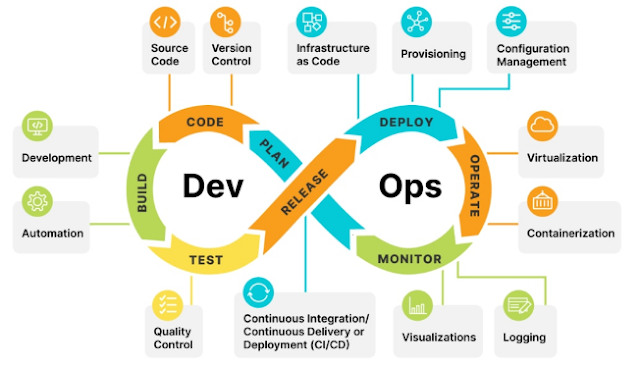DevOps is a software development methodology which improves the collaboration between developers and operations team using various automation tools. These automation tools are implemented using various stages which are a part of the DevOps LifeCycle.
Working steps :
1. Continuous development - (Plan, Code) - This stage involves committing code to version control tools such as Git or SVN for maintaining the different versions of the code, and tools like Ant, Maven, Gradle for building/ Packaging the code into an executable file that can be forwarded to the QAs for testing.
Tool - Git is a distributed version control system for tracking changes in computer files and coordinating work on those files among multiple people. It is primarly used for source code management in software development, but it can be used to keep track of changes in any set of files.
2. Continuous Integrations - This stage is a critical point in the whole DevOps LifeCycle. It deals with integrating the different stages of the devOps lifecycle and is therefore the key in automating the whole DevOps Process.
Tool - Jenkins is an open source automation server written in Java. Jenkins helps to automate the non-human part of the software development process, with continuous integration and facilitating technical aspects of continuous delivery.
3. Continuous Deployment - [Release, Deploy ] In this stage the code is built, the environment or the application is containerized and is pushed on to the desired server. The key processes in this stage are Configuration Management, Virtualization and Containerization.
Tool - Continuous Deployment---> puppet
4. Continuous Testing - The stage deals with automated testing of the application pushed by the developer. if there is an error, the message is send back to the integration tool, this tool in turn notifies the developer of the error. If the test was a success, the message is sent to integration tool which pushes the build on the production server.
Tool -- Selenium, Tosca etc .. is a portable software testing framework used for web application. It is an open source tool which is used for automationg the tests carried out on web browsers(Web applications are tested using any web browser)
5. Continuous Monitoring - [Operate, Monitor] The stage continuously monitors the deployed application for bugs or crashes. It can also be setup to collect user feedback. The collected data is then sent to the developers to improve the application.
Tool - Nagios is an open source devops tool which is used for monitoring systems, networks and infrastructure, It also offers monitoring and alerting services for any configurable event.

No comments:
Post a Comment
Note: only a member of this blog may post a comment.